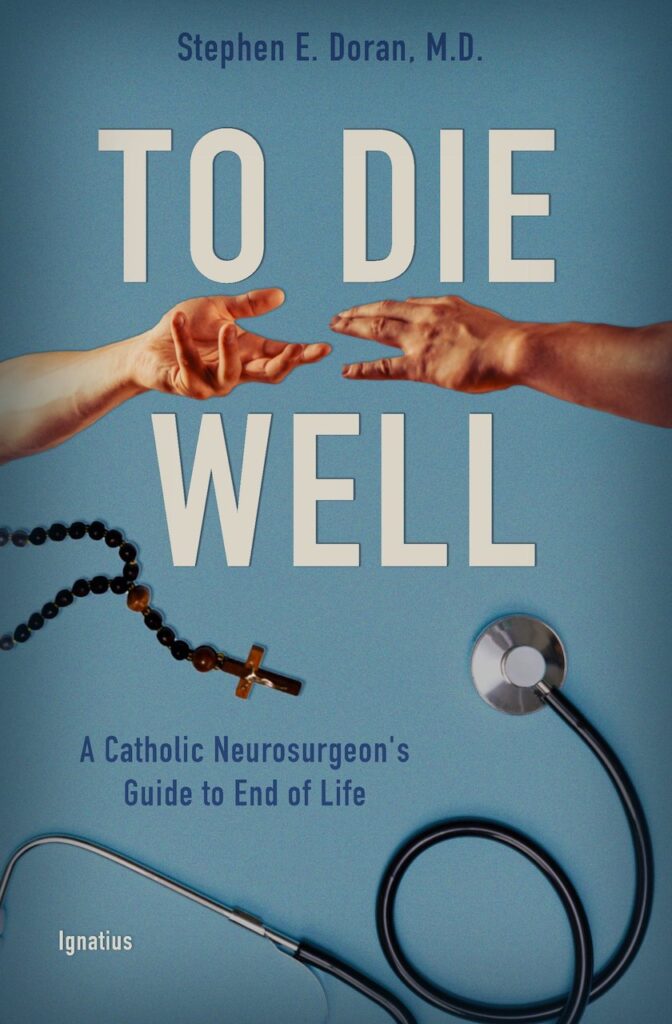‘To Die Well: A Catholic Neurosurgeon’s Guide to the End of Life’
Stephen E. Doran, MD, Ignatius Press (2023)
219 pages, $17.95
When a dog or a horse is suffering and in pain, they are put out of their misery with an injection or a bullet. Today, laws are enacted in the United States, Canada, and around the world that give grandparents and neighbors the same path out of suffering through euthanasia or medically assisted suicide. In his newest book, Dr. Stephen Doran sets out to explain why it’s wrong to take grandma out behind the barn like we would an injured calf.
“To Die Well” is a thorough exploration of Catholic teaching on all topics related to end-of-life decisions, as well as a guide to spiritual preparation for death. Through personal anecdotes and stories that have garnered news coverage, Dr. Doran presents case studies that concretize abstract philosophical principles related to upholding the dignity of human life in complicated medical situations in a way that is presentable to the average reader.
For example, Dr. Doran introduces the complex principle of double effect, in which a secondary, unintended negative consequence comes from an intervention that had another intention entirely. This is the case when a patient on hospice is given higher-than-average doses of pain medication to relieve some of their suffering, even though it carries a risk of damaging their heart or lungs. This is fundamentally different from euthanasia, which is when a medication is administered with the sole purpose of bringing about death.
Humans are different from animals because we have the capacity to make sense of our pain and to make it redemptive. Every single moment of our lives has been planned by a God who loves us deeply, who created us so that we would come to know his love on earth and reveal it to others. It is not up to us to choose to cut that time short, says Dr. Doran, because God will use every single moment of our lives for his glory.
The first section of the book, on morality, is a gift that clearly states church teaching on difficult issues; but the real treasure is the second section, which focuses on how to spiritually prepare for a holy death. Some readers may be overwhelmed by the intensity of the first half of the book on moral principles, but everyone can benefit from reading about preparing for heaven. The chapters in this section, which include topics such as anointing of the sick and Catholic funeral practices, are pastoral in tone, inspiring readers to aim for living a virtuous life to have a holy death.
“To Die Well” is an excellent resource for all Catholics, particularly for health care workers or lawyers who walk with people as they prepare for death. Dr. Doran has written it in such a way that each chapter stands on its own, and that makes this an excellent reference book to have handy when one needs to look up church teaching on various end-of-life issues, such as hospice care, pain management and advanced directives.
While the content of “To Die Well” is discussed rather clinically, the intensity of the subject matter may be difficult for some readers. Topics covered in the first section on morality include infant and child loss, miscarriage, suicide, drug and alcohol abuse, brain death, and other issues related to serious illness and death. The second section on the spirituality of a good death is appropriate for all readers and could be incorporated into a healthy spiritual practice of memento mori — the age-old practice of remembering that all of us will die.

